#Madiba100
Amid disillusionment and neglect, the youth push on in hope
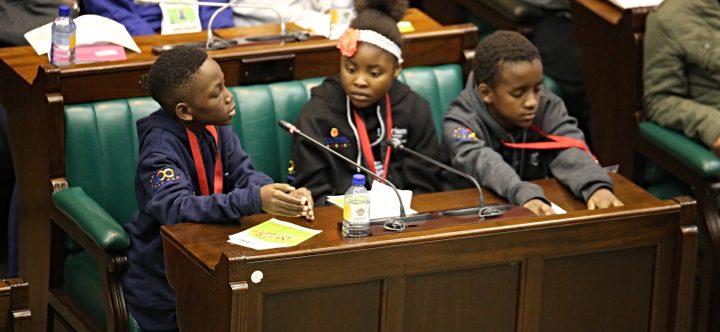
As South Africa celebrates the centenary of Nelson Mandela on Wednesday 18 July, Daily Maverick took to the streets of Cape Town to find out what legacy Mandela has left behind in the hearts and minds of people, especially the youth.
At the Company’s Garden in Cape Town, a 68-year-old man stands over a water fountain, bird-watching. He travels a 23km taxi distance every day from his home in Grassy Park to the Gardens, where he spends most of his afternoons, because he is unemployed. His name is Ebrahim Cornelius.
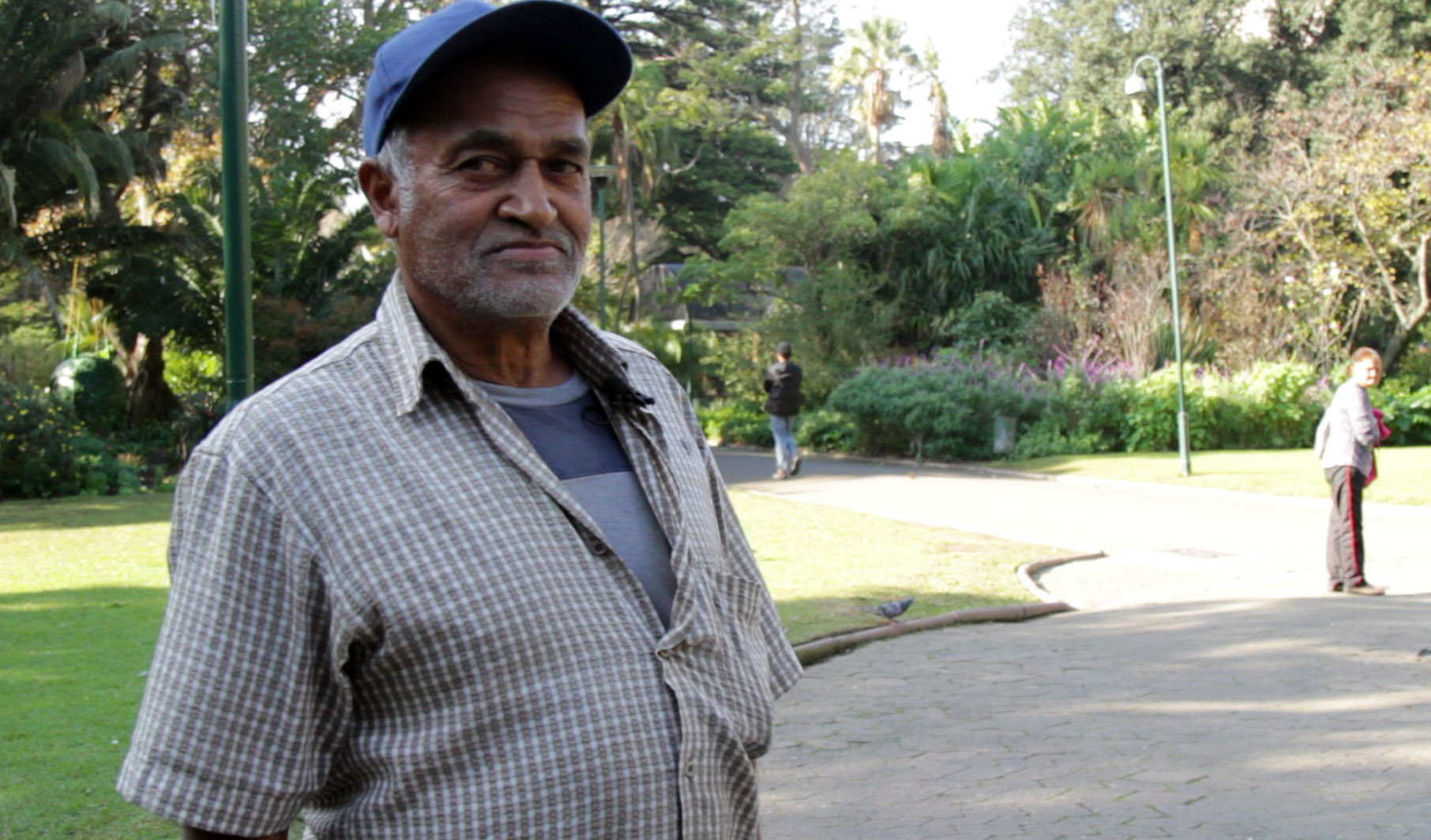
Ebrahim Cornelius says that Mandela could have done more. Photo by Aphiwe Ngalo
Being close to Mandela Day, Ebrahim Cornelius rolls his eyes when asked what plans he has for the celebrated event.
“Mandela did nothing for us coloureds. I’m speaking the truth. His wife (Winnie Madikizela-Mandela) was a better woman,” he says. He then reaches out for a few strawberry sweets in the plastic bag he carries and hands them out to a group of children passing by.
Cornelius believes that Mandela did not leave a powerful legacy. He believes that many of the challenges that people of colour fought against during apartheid still exist today, and will continue to affect younger generations.
Cornelius did not grow up in Grassy Park, but in Constantia, one of the most affluent neighbourhoods in Cape Town. His family’s home was taken away from them during apartheid due to the 1960s Group Areas Act. He says that he is still protesting today to get their land back.
“He sold us out. I’m sorry but that is the truth… Look at us. I was born and bred in Constantia. We were thrown out and up till this day, we are still fighting and we are getting nowhere. Our land is still empty, it’s vacant, it wasn’t sold or anything but we’re still fighting. Why are we fighting? All my aunts and my uncles and everybody, they died already… What did Mandela do for us here in Cape Town? What will the children in the future have to celebrate?”
Cornelius says that he does not celebrate Mandela Day because there isn’t much to celebrate. He argues that Mandela was used as a ploy to distract the people of South Africa from the reality of the inequality that they face today due to apartheid.
“I don’t even worry myself about these politicians because they’re only there to be seen in the limelight and then after that they don’t worry themselves about us… His (Mandela) time is up. He was celebrated enough.”
The next day, just next to the Gardens, the parliamentary office buzzes as a group of children enter the premises, wearing colourful hoodies with the slogan “A Mandela in every generation” on them.
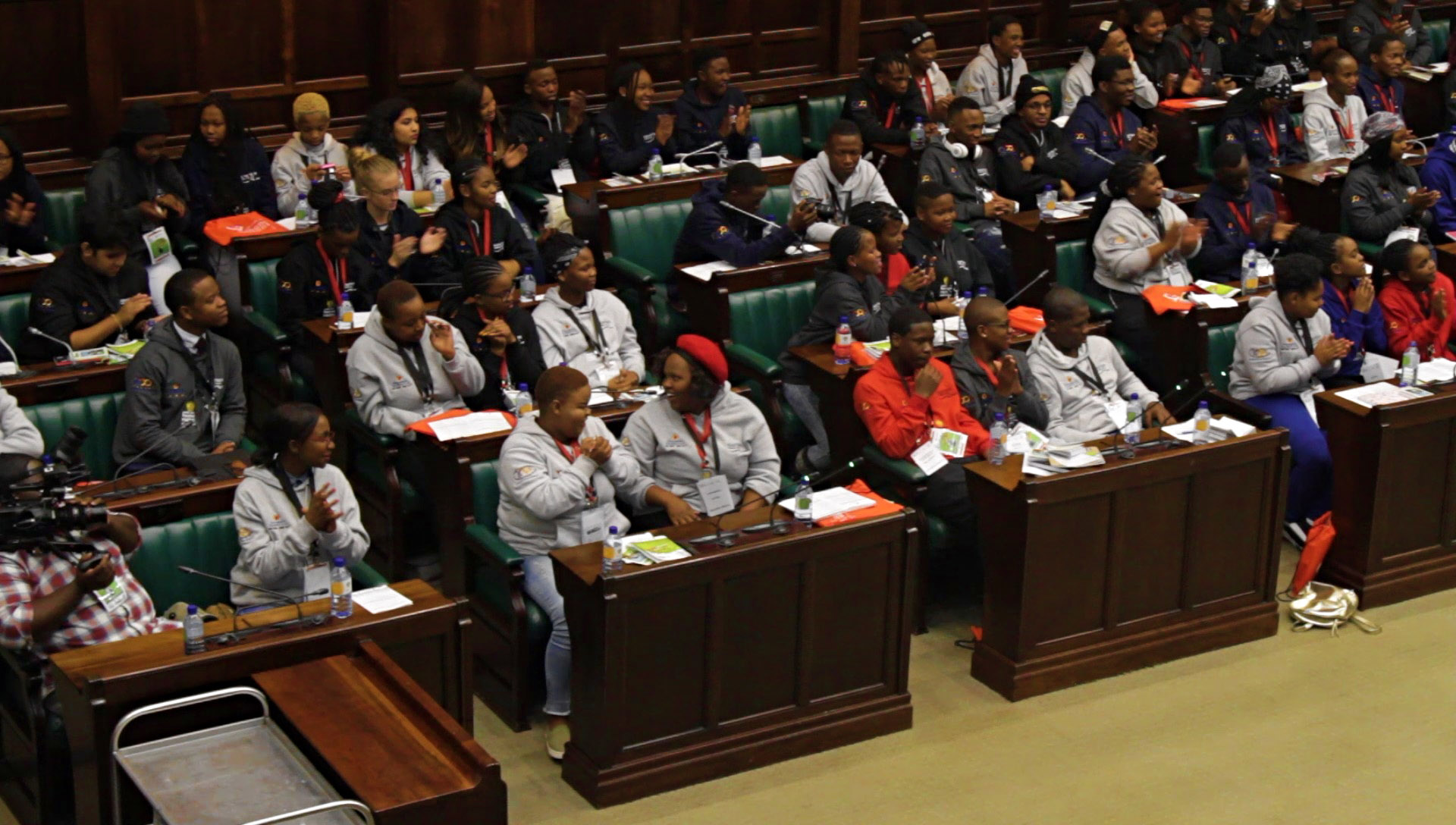
Over 350 young people attended the youth summit in Parliament. Photo by Aphiwe Ngalo
Unlike Cornelius, these young people have a different perspective of Mandela. They are among 350 youth delegates coming from all over South Africa, who have been nominated and trusted by their peers to represent them at the 6th annual Nelson Mandela Children’s Fund (NMCF) youth summit.
“The summit is to reflect on the heritage and legacy that Mandela and Mama Sisulu left us,” said Deputy Speaker of Parliament Honourable Lechesa Tsenoli as he opened the day’s events.
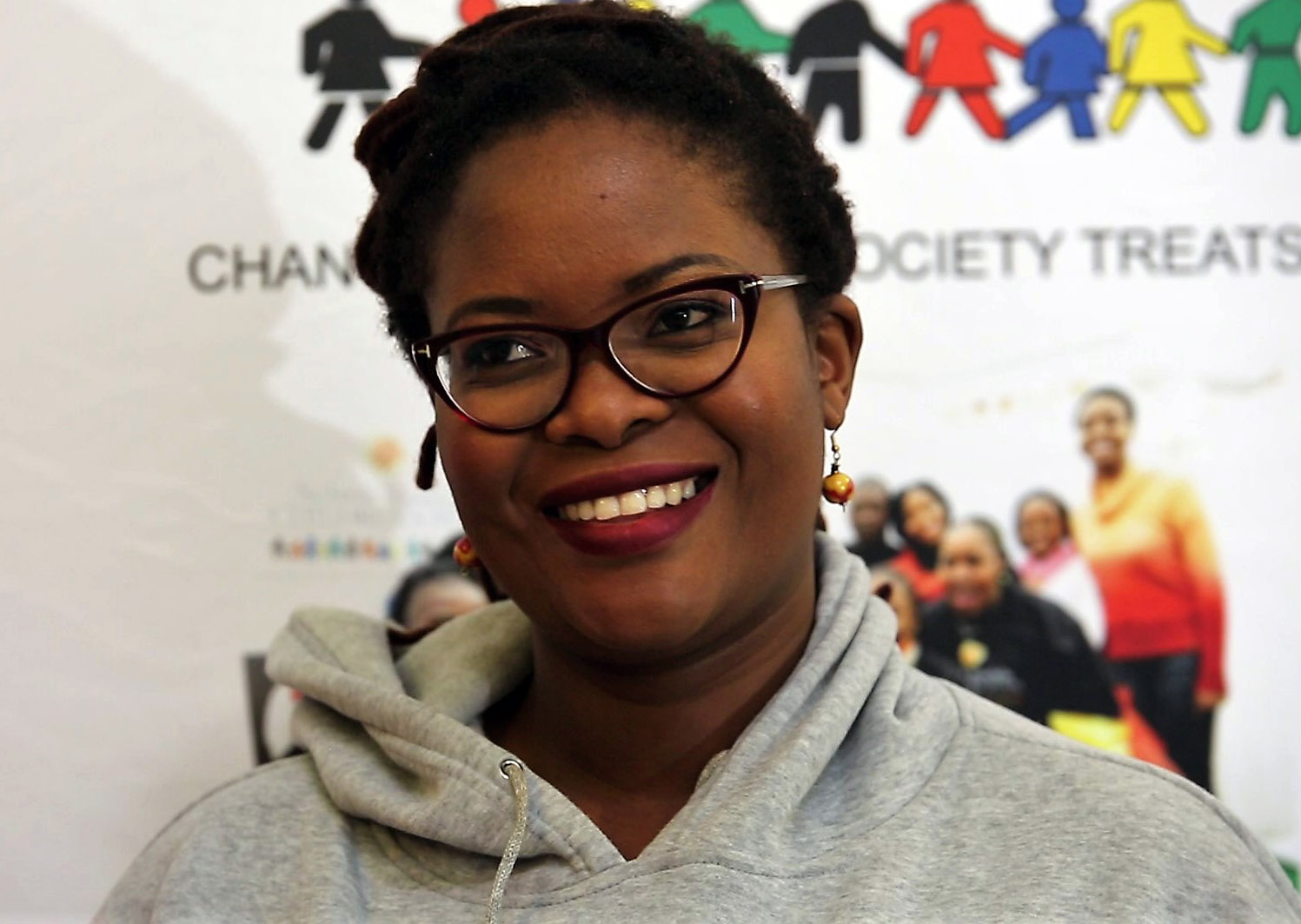
A volunteer at the NMCF, Ntsako Mhkabela speaks about the work the fund does, pictured outside the Old Assembly Chamber in Parliament. Photo bby Aphiwe Ngalo
“As you know, South Africa is a society where children get the brunt of everything, whether it’s unemployment, violence or drug addiction. At the end of the day, children are the ones who are most affected,” said Ntsako Mkhabela, a volunteer of NMCF.
“The NMCF works to create safe school spaces, nutrition programmes, it promotes the health and well-being of the child in a holistic sense. In order to transform the way children are treated, you have to give them a voice. The children that make up the NMCF have a record of leadership and passion for social justice initiatives, they are involved in after-school programmes, they are elected by their peers to represent them at this summit.”
Michelle Nkamankeng, 9, is the youngest African author to make it onto the top 10 youngest writers in the world list. Nkamankeng’s novel Waiting for the Waves is about young girls conquering their fears.
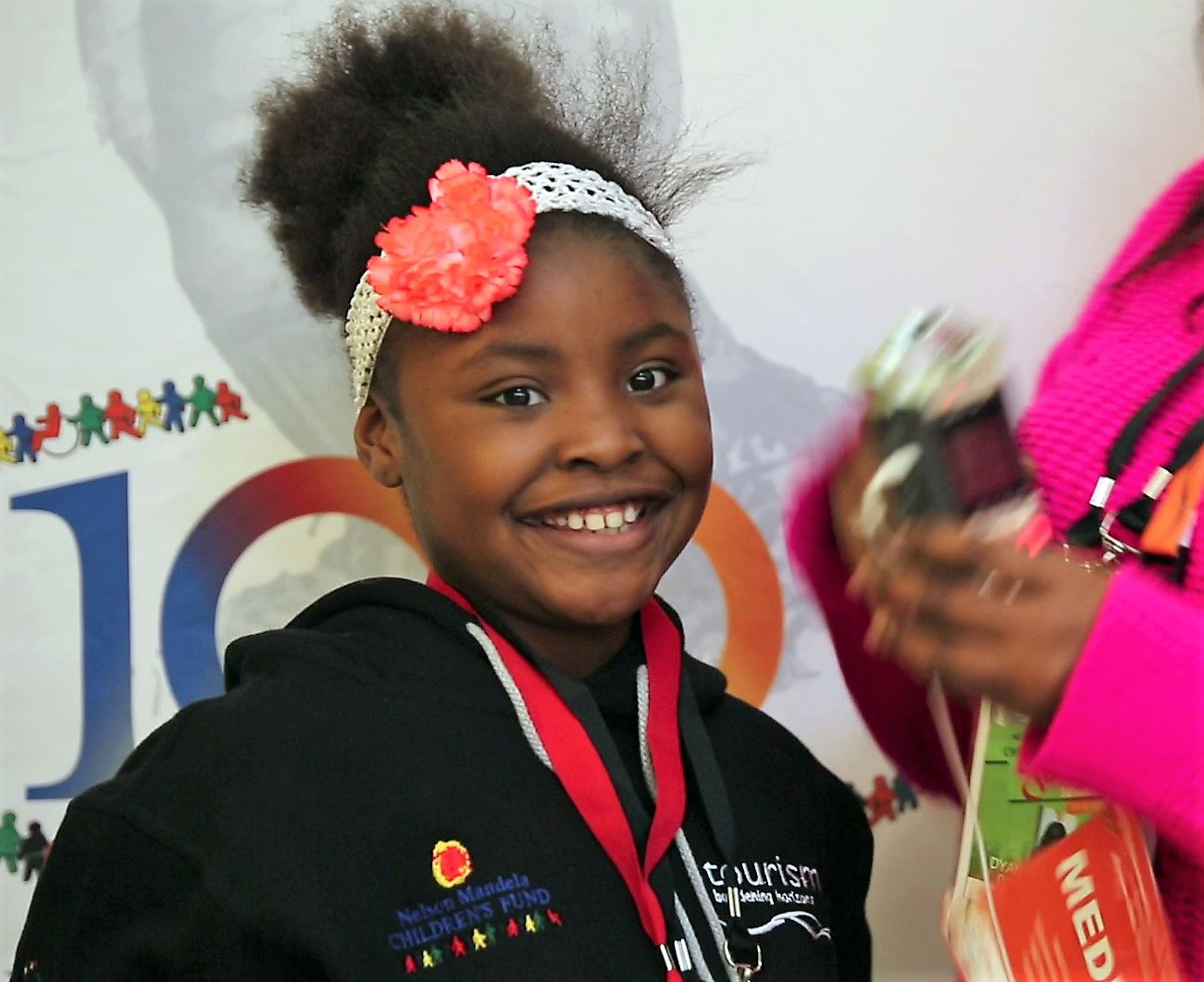
Young author Michelle Nkamakeng attended the Youth Summit in Parliament. Photo by Aphiwe Ngalo
“Tata Mandela once said to us, ‘Amandla!’ (Nkamankeng says as she throws her first in the air)… We have to be like tata Mandela, and be leaders just like him, and be strong and loud and fight for what’s right. I want to write more books,” Nkamankeng says.
The youth were given the platform to comment on the current status of South Africa and the challenges that they face in their communities as young people, and suggest possible solutions to parliamentarians at the Youth Summit.
“Some of them may seem small and tiny, but Mandela once said that we don’t work for them, we work with them,” adds Tsenoli.
In a political debate section of the programme, the eager youth fired questions at UDM Chief Whip Nqabayomzi Kwankwa. Speaker of the Youth Summit Seluleko Ndlovu said that even though other MPs from the various parties were invited to take part in the debate, only Kwankwa showed up.
“When they are counting the population, they include us as young children, but when it’s time to make decisions, they don’t include us,” said one of the delegates.
The youth members spoke on issues including children’s rights, teenage pregnancies, gangsterism, the protection of LGBT community members and under-age voting.
A 10-year-old-boy, Mangaliso Mxenge, spoke on under-age voting.
“Let’s say we’re in 2019 and it’s the elections, and a child wants to vote but they don’t have that opportunity to vote because they are under-age, what if the child studies and studies all the things that different political parties want to change in the country and they understand the depth of what they are doing, and they go through one or two assessments and they have the voting intelligence of an adult, why don’t we assess such children and allow them to vote?
“It’s not what’s on the outside that matters, it’s what’s on the inside.”
The crowd chuckled at Mxenge’s suggestion, to which Kwankwa jokingly said that Mxenge should work closely with the UDM, and that the law denies people who are under age from voting to protect them as they are vulnerable.
Another young delegate from Cape Town posed a question on gangsterism among young boys and teenage pregnancy among young girls, and questioned why the City of Cape Town was not doing enough to address it, specifically the DA, which was not represented at the debate.
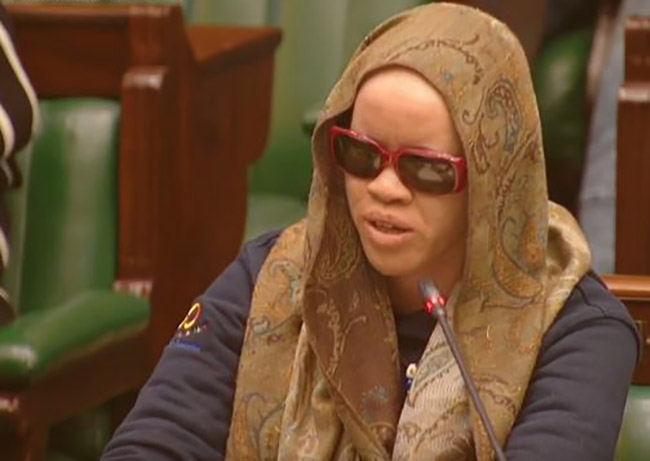
Abongile . Photo taken from RSA Parliament Youtube channel
Abongile Xhanti Miya, a young girl who has albinism, spoke on how she sometimes feels that her life is threatened in this country. She also said that the term albino “is derogatory”.
“I would like to correct you, Honourable Kwankwa. I’m not an albino, I don’t suffer from albinism, I have albinism.”
Miya said that the term is often used to shame children and dehumanise them by comparing them to animals.
Lusanda Sothengwa, from the Eastern Cape, spoke about the condition of hospitals in the province and how young girls get shamed by nurses when they try to get contraceptives. Sothengwa said that the clinics were not “youth-friendly” and that hospitals are also closed too early, especially at weekends.
Another young delegate, also from the Eastern Cape, spoke on the conditions of township schools, how children lack books, stationery, teachers and laboratories and how that affects them when they go into institutions of higher education.
“I want to have a lab and everything like the ex Model C schools. Parliament should also focus on schools in the rural areas, not only the private,” she said.
Kwankwa responded, “We speak of inequality as if it is something that is distant from us but it is not… I like to think that the generation that has passed took the country to political freedom, now it is time for us to take the country to economic freedom. We have to ask ourselves, have we done enough?”
Kwankwa told the youth delegates that leadership was about providing solutions to problems and being effective and urged the young people to not only trust youth committees in parties to speak for them, but to work together with them, speak on their issues and get their voices heard.
“In South Africa we trust anyone who stands behind a microphone and think they are a leader; they are not,” Kwankwa said.
He pleaded with the young people to play an active role in suggesting what proposals and policies parliamentarians can make to resolve the issue of inequality.
“I can see in your faces that South Africa does indeed have a very bright future,” he said in closing.
Nelson Mandela once said:
“Our children are the rock on which our future will be built, our greatest asset as a nation. They will be the leaders of our country, the creators of our national wealth who care for and protect our people.”
Perhaps that is the solution to the legacy of Mandela, that the children of the country will be the answer to the many problems that we face today. DM



















 Become an Insider
Become an Insider